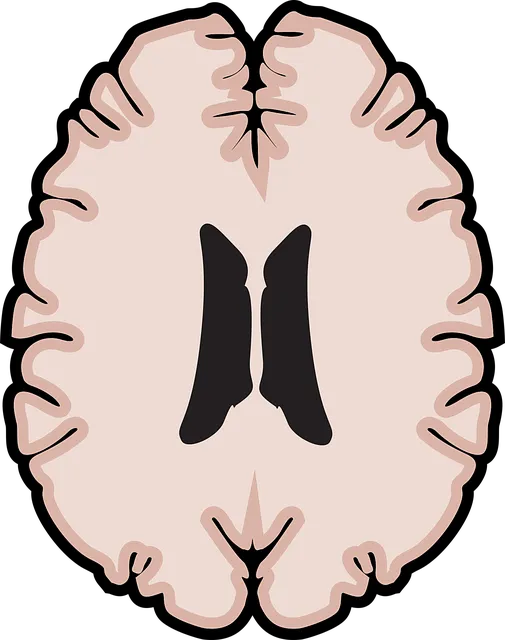The Kaiser Permanente Mental Health Access Center in Lafayette is a pioneering advocate for mental well-being, offering comprehensive services that extend beyond traditional care. Through accessible resources, tailored interventions, and education, this center promotes self-esteem, emotional regulation, and breaks down stigma around mental health. Their holistic approach, including burnout prevention strategies for healthcare providers, fosters a culture of care, transforming lives and communities in Lafayette and beyond. By combining quantitative data with client feedback, the center continuously improves its initiatives, ensuring a lasting impact on mental healthcare access and advocacy.
Mental health advocacy initiatives play a crucial role in fostering community well-being. This article explores the significant impact of such efforts, using the Kaiser Permanente mental health access center in Lafayette as a model for success. We delve into strategies that empower individuals and communities, discuss engaging strategies to build awareness and break stigma, and provide guidance on evaluating and improving these initiatives. By examining real-world examples like the Kaiser Permanente center, we offer valuable insights into effective mental health advocacy.
- Understanding the Impact of Mental Health Advocacy
- The Kaiser Permanente Model: A Center for Access and Support in Lafayette
- Strategies for Effective Mental Health Advocacy Initiatives
- Engaging Communities: Building Awareness and Breaking Stigma
- Measuring Success: Evaluation and Continuous Improvement in Mental Health Advocacy
Understanding the Impact of Mental Health Advocacy

Mental health advocacy plays a pivotal role in shaping communities and improving individual well-being, especially when initiatives like the Kaiser Permanente Mental Health Access Center in Lafayette are implemented. This center serves as more than just a facility; it’s a symbol of hope and support for those grappling with mental health issues. By providing accessible resources and services, it facilitates self-esteem improvement, emotional regulation, and resilience building among its clients. These initiatives not only cater to immediate needs but also focus on long-term strategies to enhance overall mental well-being within the community.
The impact of such advocacy is profound, as it breaks down societal barriers and stigma surrounding mental health discussions. Through education, awareness campaigns, and direct support, individuals are empowered to seek help without fear or judgment. The Kaiser Permanente center, for instance, offers a safe space where people can connect with peers and professionals, fostering an environment conducive to healing and personal growth. This holistic approach ensures that advocacy goes beyond treatment; it promotes a culture of care and understanding, ultimately strengthening the fabric of communities across different landscapes.
The Kaiser Permanente Model: A Center for Access and Support in Lafayette

In recent years, Kaiser Permanente has pioneered innovative mental health advocacy initiatives, one notable example being their Center for Access and Support in Lafayette. This center serves as a beacon of hope for individuals seeking improved mental wellness. By combining comprehensive care with accessible services, it aims to revolutionize mental healthcare. The model focuses on providing a safe and supportive environment, ensuring that patients receive tailored interventions for their unique needs.
The Lafayette location offers specialized programs designed to address various aspects of anxiety relief and emotional regulation. These programs cater to diverse populations, promoting holistic healing and fostering a sense of community among individuals navigating mental health challenges. Through this strategic approach, the Kaiser Permanente Model demonstrates a commitment to transforming lives and shaping a more supportive society where mental wellness is prioritized.
Strategies for Effective Mental Health Advocacy Initiatives

Mental health advocacy initiatives require a multifaceted approach to create meaningful change. One effective strategy is to engage and educate communities, ensuring they understand mental health as a vital aspect of overall well-being. The Kaiser Permanente Mental Health Access Center in Lafayette serves as an excellent model, providing resources and support tailored to diverse populations. By offering accessible services and raising awareness through various programs, this center fosters a culture of open dialogue about mental health.
Additionally, incorporating Burnout Prevention Strategies for Healthcare Providers can significantly impact advocacy efforts. Promoting Stress Management techniques and encouraging Mindfulness Meditation practices among caregiving professionals ensures they can effectively support patients. These strategies not only enhance the quality of care but also encourage providers to prioritize their well-being, ultimately contributing to more sustainable advocacy initiatives in the long term.
Engaging Communities: Building Awareness and Breaking Stigma

Mental health advocacy initiatives thrive on community engagement, which plays a pivotal role in building awareness and breaking down the stigma surrounding mental illness. One notable example is the Kaiser Permanente Mental Health Access Center in Lafayette, which has been at the forefront of these efforts. By reaching out to local communities, they foster open conversations about mental wellness, normalizing discussions that were once considered taboo. This approach encourages individuals to seek support without fear of judgment or discrimination.
Through community-oriented programs and events, the center promotes understanding and empathy, addressing cultural sensitivities in mental healthcare practice. They emphasize the importance of self-care practices and self-esteem improvement, ensuring that all members of society feel empowered to take charge of their mental health. By engaging communities directly, these initiatives create a supportive network where individuals can find resources, share experiences, and offer encouragement, ultimately leading to better access to mental healthcare services for everyone.
Measuring Success: Evaluation and Continuous Improvement in Mental Health Advocacy

Evaluating the success of mental health advocacy initiatives is crucial to ensure their effectiveness and make informed improvements. At the Kaiser Permanente Mental Health Access Center in Lafayette, this process involves a comprehensive approach. They measure success not only through quantitative data like service usage but also qualitative metrics such as client satisfaction and emotional well-being promotion techniques. By collecting feedback from individuals who have accessed their services, the center gains valuable insights into the impact of their advocacy.
This evaluation extends to tracking the long-term outcomes, including clients’ ability to manage stress, regulate emotions, and employ compassion cultivation practices in daily life. Through these assessments, the Kaiser Permanente Mental Health Access Center can continuously refine its strategies, ensuring that its advocacy initiatives remain aligned with the evolving needs of the community. This dynamic approach fosters a culture of improvement, ultimately enhancing the overall quality of care provided.
Mental health advocacy initiatives, such as the Kaiser Permanente mental health access center in Lafayette, play a pivotal role in fostering community well-being. By understanding the impact of these efforts and employing effective strategies, like engaging communities to break stigma, we can significantly enhance mental healthcare accessibility. Continuous evaluation and improvement are essential to ensure that these initiatives meet the diverse needs of those they serve, ultimately revolutionizing support for mental health in our society. The Kaiser Permanente model serves as a testament to what’s possible when we prioritize mental well-being on a community level.






